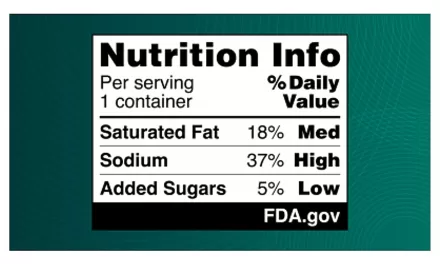As the holiday season fades into the distance, many people find themselves facing a period of emotional letdown. For some, the transition back to the daily grind after the festivities can be overwhelming, while others experience seasonal depression or seasonal affective disorder (SAD) triggered by the shorter, darker days of winter. Whether it’s the post-holiday slump or the colder months bringing you down, there are effective strategies to lift your mood and combat the winter blues.
While eating well and exercising are known mood-boosting tactics, sometimes these aren’t enough to overcome the emotional toll winter can bring. To help, we’ve gathered lesser-known, science-backed tips from experts to beat the winter blues and take control of your mental well-being.
1. Take a Brief Psychological Holiday
Licensed psychotherapist Mayra Mendez, PhD, advises that when you’re feeling down, it’s okay to escape, even briefly, to something positive. Engage in a task that takes your mind away from stress—whether it’s crafting, reading a book, cooking your favorite meal, or listening to something inspiring. A few minutes of enjoyable activity can restore a sense of control and boost your mood.
2. Commune with Nature
Mendez highlights the healing power of nature, especially through animals. Spend time with your pet or take a walk outdoors to observe the beauty around you. Connecting with nature, even if just for a short while, can relax the mind and reduce negative thinking.
3. Break from the Routine
Change up your predictable schedule. Take a trip to a museum or explore something you’ve neglected. Shifting your environment can help break the cycle of negative thought patterns and bring new perspectives to life.
4. Make Small Changes
Simple changes in your environment—like rearranging furniture or decluttering your home—can spark creativity and bring a sense of purpose. These small shifts can provide a mental reset, helping to combat feelings of stagnation.
5. Consider Volunteering
Volunteering for a cause you care about can improve mental health. Activities like helping at homeless shelters or assisting with community events foster a sense of purpose and reduce isolation, making a positive impact on both others and yourself.
6. Wear Your Favorite Outfit
Don’t wait for a special occasion—wear your favorite clothes now. Putting on something that makes you feel good can boost your confidence and mood, giving you a simple yet effective way to break free from the blues.
7. Try ‘Tapping’
Emotional Freedom Technique (EFT), or tapping, involves gently tapping on acupressure points on your body to alleviate stress, anxiety, and depression. This evidence-based practice combines acupuncture, cognitive behavioral therapy, and neurolinguistic programming, and has been shown to reduce symptoms of various mental health challenges.
8. Strategic Caffeinated ‘Power Naps’
If you’re sleep-deprived after the holiday rush, consider a mid-afternoon power nap paired with caffeine. A 20-minute nap will give you a boost of energy, as the caffeine kicks in right after you wake up, helping you feel refreshed and more alert.
9. Take an ‘Awe Walk’
Psychologist Ilana Lane suggests taking an awe walk, where you intentionally seek out things that inspire wonder—be it the sky, nature, or architecture. Research shows that even just a 15-minute walk focused on awe can improve emotional well-being, fostering gratitude and positive emotions.
10. Gratitude Practice with a Twist
Going beyond the typical gratitude journal, Lane recommends the “gratitude visit.” Write a letter to someone you’re grateful for, then read it aloud to them. This practice has been shown to significantly boost happiness and decrease depressive symptoms for up to a month.
11. Create Anticipation
Combat the post-holiday letdown by creating something to look forward to. Whether it’s a vacation, a cooking class, or a meditation workshop, having a planned activity to anticipate helps create excitement and enhances well-being. For those with social anxiety, online learning options offer similar benefits in a more comfortable setting.
12. Find Opportunities for Laughter
Laughter is one of the simplest and most effective ways to combat low mood. Studies show that laughter reduces stress and triggers the release of endorphins, which elevate mood and decrease anxiety. Watching funny videos, or better yet, sharing laughter socially, can have profound positive effects.
13. Plan in Advance
Preempt the post-holiday blues by scheduling activities that bring you joy. Planning social gatherings or fun activities with friends, family, or coworkers helps ensure that you stay engaged and connected, keeping your mood lifted long after the holidays are over.
14. Write Thank-You Cards
Counselor Courtney Morgan suggests that expressing gratitude through thank-you cards can help you stay connected to loved ones while reinforcing positive feelings. Whether thanking someone for a gift or their support, this practice not only boosts your mood but also strengthens relationships.
Takeaway
Seasonal depression can feel overwhelming, but it’s important to remember that with some proactive self-care, you can navigate these feelings. In addition to eating well, exercising, and getting enough rest, try incorporating some of these creative, expert-backed strategies. Whether it’s volunteering, learning something new, or simply taking time to enjoy nature, there are many ways to lift your spirits. And while the winter may feel long, remember—spring is just around the corner.












